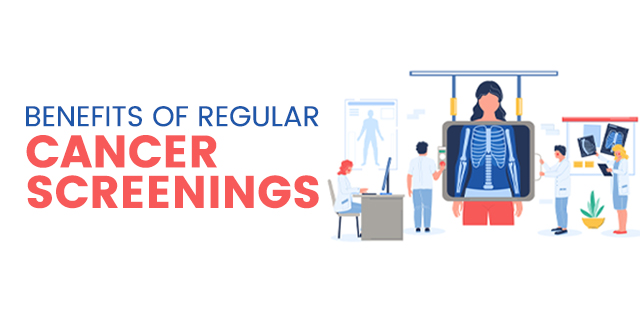The Power of Early Detection: Why Regular Cancer Screenings Matter

Introduction:
Cancer is a formidable disease that affects millions of lives worldwide. However, the key to successful treatment lies in early detection. Regular cancer screenings play a vital role in identifying cancer at its earliest stages when treatment options are most effective. In this blog, we will delve into the importance of early detection and highlight the significance of undergoing regular cancer screenings.
Understanding Early Detection:
Early detection refers to identifying cancer before it spreads to other parts of the body. Detecting cancer at an early stage significantly improves the chances of successful treatment and survival. It allows for less invasive treatment options and reduces the risk of complications.

Benefits of Regular Cancer Screenings:
Increased Treatment Success: Regular screenings can detect cancer in its initial stages when it is more likely to be treatable. Early intervention often leads to higher treatment success rates and improved outcomes.
Identifying Precancerous Conditions:
Screenings can also identify precancerous conditions, enabling medical professionals to take preventive measures and reduce the risk of cancer development.
Personalized Risk Assessment:
Regular screenings help medical experts assess an individual’s risk factors and tailor their approach to cancer prevention and early detection based on their unique circumstances.
Common Types of Cancer Screenings:
Breast Cancer: Mammograms and clinical breast exams are recommended for women to detect breast cancer early.
Colorectal Cancer: Tests such as colonoscopies, faecal occult blood tests, and sigmoidoscopies aid in the early detection of colorectal cancer.
Prostate Cancer: Prostate-specific antigen (PSA) blood tests and digital rectal exams are commonly used for the early detection of prostate cancer in men.
Cervical Cancer: Regular Pap tests or HPV DNA tests are crucial for identifying precancerous changes in the cervix.
Importance of Age and Risk Factors:
The frequency and types of screenings vary based on age, gender, and individual risk factors. It is essential to consult healthcare professionals to determine the appropriate screenings and schedules based on personal circumstances.
Overcoming Barriers to Screening:
To ensure widespread access to screenings, it is crucial to address barriers such as lack of awareness, financial constraints, and cultural factors. Community education programs, improved healthcare policies, and increased outreach efforts can help overcome these barriers.
Conclusion:
Early detection is a game-changer in the battle against cancer. Regular cancer screenings can save lives by identifying cancer at its earliest, most treatable stages. By prioritizing screenings and staying proactive about our health, we can significantly improve outcomes and increase the chances of successful treatment. If you are searching for a Super speciality hospital in Patna, you can go for Rajeshwar Hospital. Remember, early detection is the key to winning the fight against cancer.